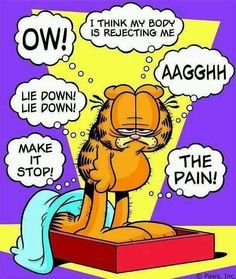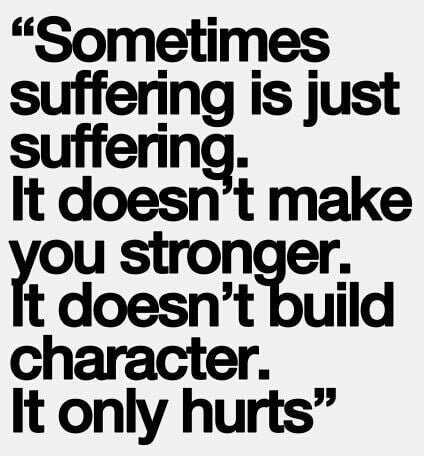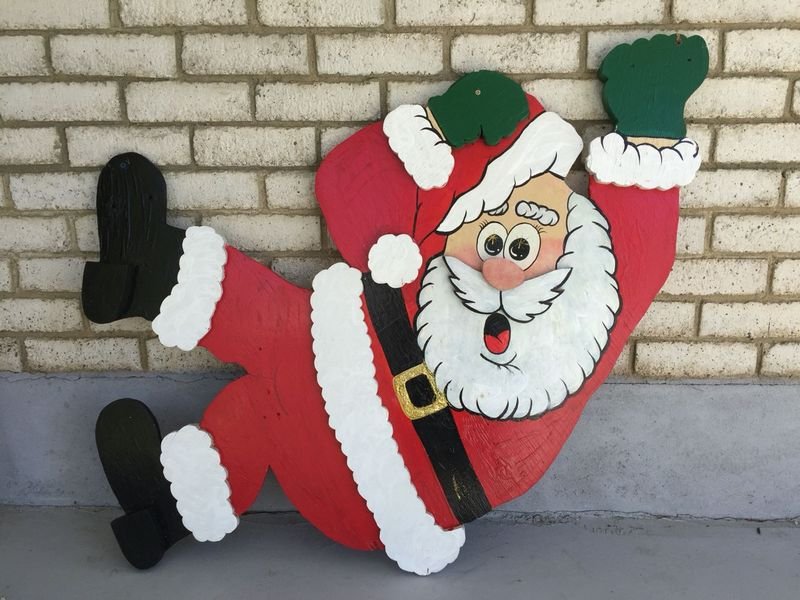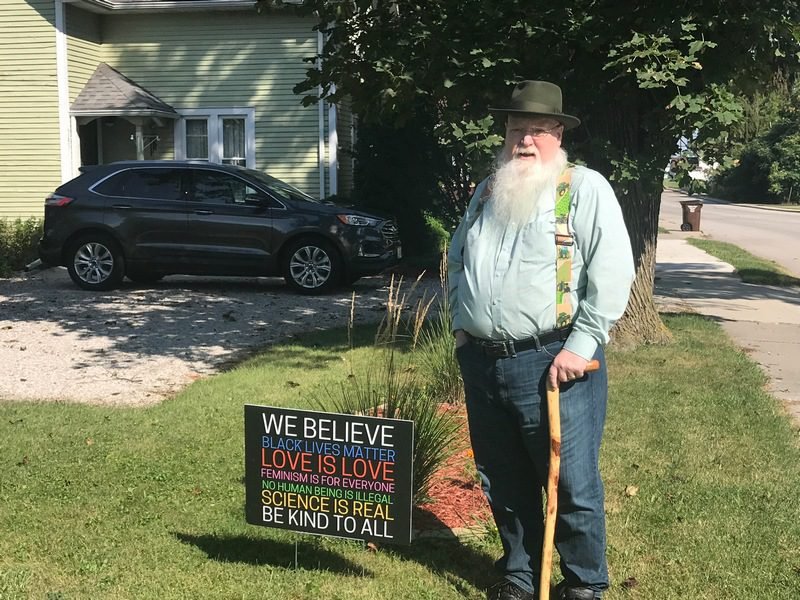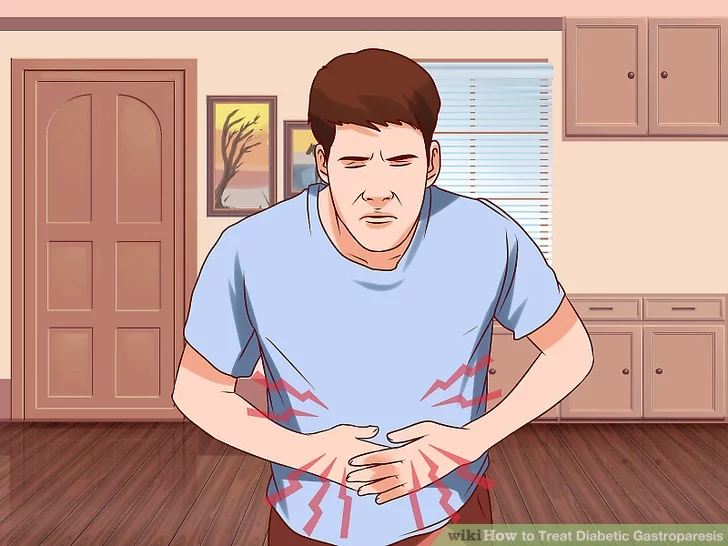
Two years ago, I had my diseased, inflamed gallbladder removed. I had put off surgery for years, but my primary care doctor insisted I have it removed, fearing it could rupture at any moment. After my gallbladder was removed, the surgeon told me that my gallbladder was so large that he had to enlarge the incision to get it out. Not long after, I started having serious stomach and bowel problems. After spending several days in the hospital — a nightmare experience — Dr. Matt Cooley, a local gastroenterologist, determined I had gastroparesis. I had several endoscopies and colonoscopies to make sure that some other problem was causing my symptoms. These tests confirmed Dr. Cooley’s diagnosis.
Since then, I have lost 110 pounds, dropping ten inches in my waist and three shirt sizes. My weight loss has leveled off thanks to me (and my drill sergeant wife) forcing myself to eat. I rarely have to drink Ensure these days. I am nauseous every day, without exception. I wake up with nausea and endure it throughout the day and evening hours. As you might imagine, it is hard to eat when you are nauseous. At times, I have bouts of vomiting. Thanks to taking Zofran, a drug that is often given to chemotherapy patients, I have been able to largely control the vomiting. Yet, there are days when Zofran doesn’t work and I end up vomiting. I retch when I vomit. This causes all sorts of other problems thanks to the herniated discs in my back and neck. Not a fun experience.
Since being diagnosed with gastroparesis, I have had to deal with several physiological changes. I am now anemic. Two years of B-12, iron, and vitamin C supplementation have helped, but blood tests show I am still anemic. The biggest change was to my vision. I got my first pair of glasses fifty years ago. I was decidedly nearsighted, with dramatically different vision in each eye. Over the past eighteen months, I have been dealing with blurred vision and aching eyes. I first saw my optometrist. After numerous eye exams, it became clear to me that she was incompetent. I then saw an ophthalmologist. He quickly determined that my body was having a hard time adjusting my glucose levels due to me being diabetic. This was affecting my vision. This doctor determined that I am now farsighted. I have, for the most part, stopped wearing glasses. I have an appointment with a new ophthalmologist later this month. I am hoping my eyes have settled down enough that I can get a stable prescription for glasses.
Outside of the non-stop nausea, the biggest problems I have are bowel related. I take fiber supplements and oral fiber medications twice a day, yet I have bouts of horrific constipation. My general rule is that if I haven’t had a bowel movement in 48 hours, I give myself an enema to get things moving. I will also have bouts of loose stools, including diarrhea. There’s no rhyme or reason for my bowel problems. I closely monitor what foods I eat and how they affect my bowels, but I have yet to find any food or foods that make a difference. Typically, my bowels are sluggish, with food often taking 3-7 days to traverse my intestinal tract. I track the speed of elimination by eating certain foods that I know will show up in my stools.
One positive effect of having gastroparesis and losing 110 pounds is that my blood glucose levels have dropped thirty percent to around 5.5. A side effect of this is that I have an increasing problem with low blood sugar levels. I have had several instances where my levels dropped to fifty, near diabetic coma range.
On occasion, I am asked what “caused” my gastroparesis. Did having my gallbladder removed play a part? My gastroenterologist believes that my gastroparesis is diabetes related. Determining the “cause” doesn’t matter that much to me. The treatment is the same, regardless of the cause.
I had a procedure done early on where the doctor using an endoscope (under anesthesia) injected the muscle at the bottom of the stomach with botulism, hoping that this would paralyze and relax the muscle. The procedure did not work. There are other procedures that are experimental in nature that can be tried, but after reading the literature on these procedures and their risks/complications, I decided against having them. I have reached the “live with it” phase of my battle with gastroparesis. I know there might come a time that I might have to have a feeding tube put in (if I choose to do so), but so far I have been able to manage my symptoms with medications, diet, and cognitive behavior therapy. There’s no cure for gastroparesis, so the only thing I can do is figure out how to live with the disease.
Recently, a friend of mine asked me for tips on how to deal with gastroparesis. His wife was recently diagnosed with the disease. What follows are my suggestions. This should not be construed as medical advice, though, quite frankly I know more about the disease than some of the doctors I have interacted with since my diagnosis. Gastroparesis is a rare disease. Many doctors are not educated on the disease, which I can easily spot when I have a consult with them. Nothing worse than a medical professional trying to bluff their way through an appointment.
What is gastroparesis?
Gastroparesis, also called delayed gastric emptying, is a disorder that slows or stops the movement of food from your stomach to your small intestine. Normally, after you swallow food, the muscles in the wall of your stomach grind the food into smaller pieces and push them into your small intestine to continue digestion. When you have gastroparesis, your stomach muscles work poorly or not at all, and your stomach takes too long to empty its contents. Gastroparesis can delay digestion, which can lead to various symptoms and complications.
How common is gastroparesis? According to NIH, gastroparesis is not common. Out of 100,000 people, about 10 men and about 40 women have gastroparesis.
It is essential to have competent medical care. Don’t be afraid to seek out a new doctor, one that has a working knowledge of gastroparesis. Doctors cannot be all things to all people, and their knowledge in one area doesn’t mean they are knowledgeable in another. At a bare minimum, you need to have a gastroenterologist on your medical team. Over time, you might find that your primary care doctor can handle your ongoing care and prescription refills. Don’t be afraid to change doctors, if necessary. Your care comes first.
There are various medications that are used in the treatment of gastroparesis. I tried several medications before landing on a regimen that works for me. Your mileage may vary. Untreated nausea will wreck your life, so don’t be afraid to ask for drugs such as Zofran, Phenergan, or Reglan. I have taken all three. Zofran works the best for me. You will likely have to use these drugs for the rest of your life.
Food. Before being diagnosed with gastroparesis, I rarely thought about the food I ate. Having gastroparesis forces me to think about food all the time. How will eating ________ affect me? I am nauseous every waking hour, so my goal is to make sure that I am getting sufficient nutrition. On days when I simply cannot bear to eat, I try to drink two Ensure drinks per day. This is not a long-term answer. Two shakes = 700 calories. This will help short-term, but the typical person needs about 1,200-1,600 calories per day. You might need to take supplements, but don’t do so without having your blood levels checked. Taking too much of a vitamin or mineral can cause you problems. Have your doctor do baseline tests to determine your blood levels. Once you have these numbers in hand, your doctor can then prescribe the proper supplements. I take B-12, iron, vitamin C (to increase Iron absorption), and potassium. I have my blood levels checked several times a year to make sure the supplements are doing their job.
Only eat what you can. You might have to push yourself on some days to eat, but don’t feel guilty if you can’t eat all of the scrumptious meal your spouse made especially for you. There are days when I can only eat 25-50 percent of the food Polly puts on my plate. There are days when I will take one or two bites and I am done. I encourage Polly not to take this personally. This is truly one of those “honey, it is me, not you.” I used to feel guilty over this, but my counselor has helped me to understand that this is not my fault. It still upsets me when we go out to a nice restaurant on a date, only for me to leave most of the food on my plate. Ugh, but there’s nothing I can do about it. The psychological price of not going out with Polly is much higher than the cost of food not eaten. Change what you can, and live with the rest. It’s not your fault.
Do whatever you need to do to maintain regular bowel habits. This, by far, is the most frustrating and challenging problem for me. If you are having problems with constipation, take fiber supplements. Don’t be afraid to up the dose until you have a normal “shit.” You might have to take fiber supplements for the rest of your life. I use psyllium husk powder twice a day. I hate drinking this stuff. Sometimes I gag, but I know if I don’t drink it, I will be constipated for sure. I also take a stool softener and laxative twice a day. All these things taken together give me tolerable bowel movements — most of the time. And when they don’t cause a bowel movement, I use enemas, either pre-filled Fleet bottles or a bulb syringe. During times of diarrhea, I stop taking fiber supplementation. Over time, you will learn how you read your body. You will become an expert in “shitting.”
Having gastroparesis will wear on you psychologically. It’s a disease you can’t get away from. It’s an ever-present reality in your life. It is not uncommon for gastroparesis sufferers to battle depression. It’s important that you seek out a competent secular counselor who has experience in helping people with serious health problems. I see a psychologist weekly. She is literally a lifesaver. Her first question every week is “how are you feeling?” She doesn’t let me get by with saying “I’m fine,” “super-dooper,” or “present and accounted for” — my typical responses. She presses me for all the gory details of my past week.
While there are gastroparesis groups on the Internet you might find helpful, be careful. As with all such groups, you will find a lot of woo and bad advice. I found this to be true with both gastroparesis and fibromyalgia groups. People mean well, but consider the source. Educate yourself about gastroparesis. Check out well-regarded medical sites. Read the scientific studies. Your goal is to know everything your doctor knows, and then some. Ask questions. Talk to fellow sufferers. None of this will “cure” you, but knowledge is power.
If I can ever be of help, please let me know. I am not a doctor, but I do know “stuff.” And as someone who has an intimate relationship with gastroparesis, I understand what you are going through. I want to help you in any way I can.
Bruce Gerencser, 66, lives in rural Northwest Ohio with his wife of 45 years. He and his wife have six grown children and thirteen grandchildren. Bruce pastored Evangelical churches for twenty-five years in Ohio, Texas, and Michigan. Bruce left the ministry in 2005, and in 2008 he left Christianity. Bruce is now a humanist and an atheist.
Connect with me on social media:
Your comments are welcome and appreciated. All first-time comments are moderated. Please read the commenting rules before commenting.
You can email Bruce via the Contact Form.

